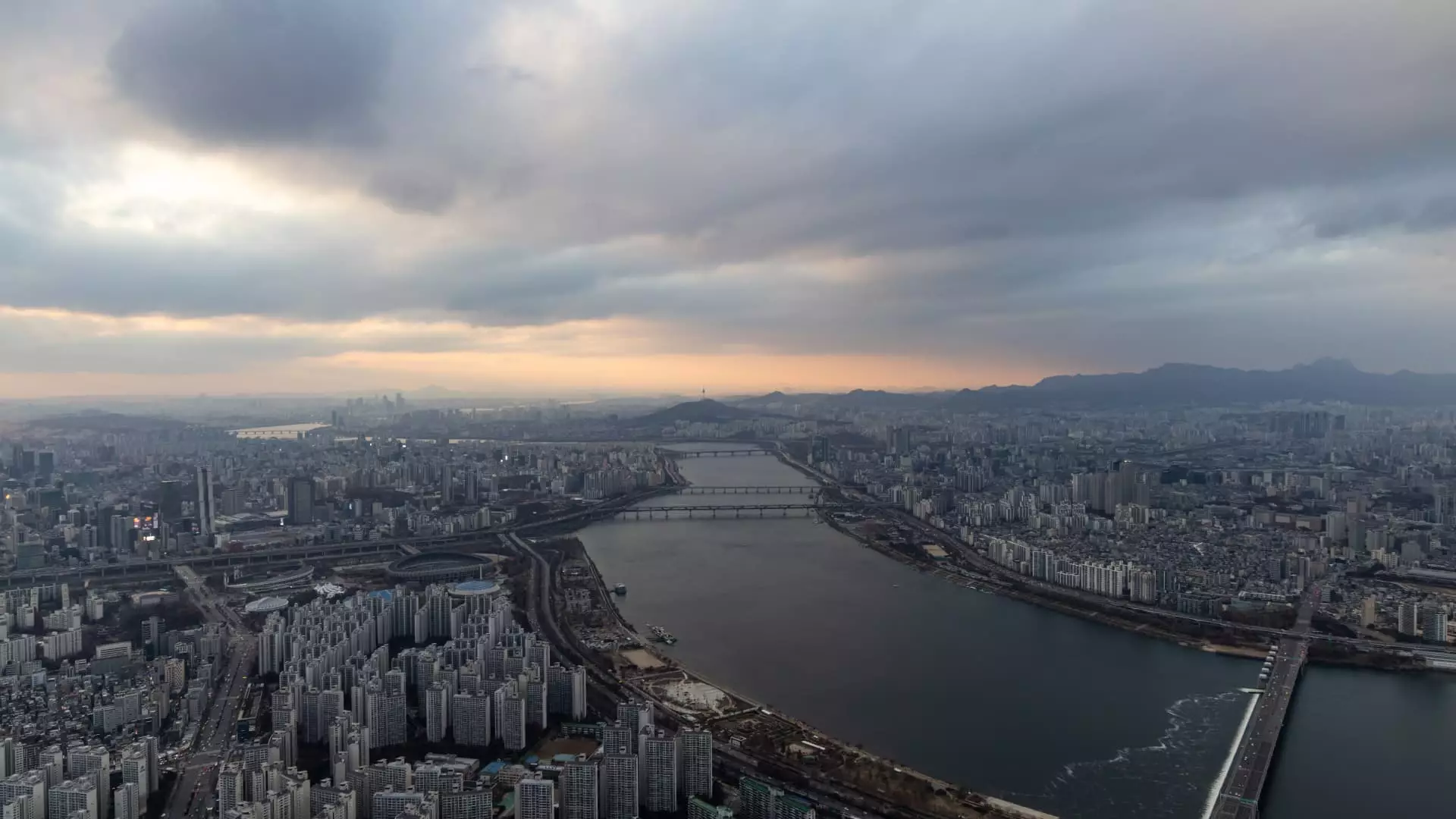South Korea’s economy is grappling with a disheartening reality: a year-on-year contraction of 0.1% in Gross Domestic Product (GDP) marks the first retreat since the pandemic-induced downturn at the end of 2020. This decline is more than just a statistical anomaly; it reflects the troubling state of economic affairs in a country that prides itself on resilience and growth. The unexpected downturn missed the modest expectations of economic analysts who were hopeful for a 0.1% rise, and the drastic pivot from a robust 1.2% growth in the previous quarter speaks to deeper issues undermining the nation’s economic fabric.
By examining the data released by the Bank of Korea, one cannot ignore the staggering 12.4% contraction in the construction sector, an area often viewed as a bellwether of economic health. Such a sharp decline raises questions about investor confidence and the structural integrity of South Korea’s growth engines. It is alarming that the findings indicate not merely an isolated dip but a systemic issue that could spiral if not addressed appropriately.
The Role of Political Turmoil
One of the most unsettling aspects of this economic downturn is its direct correlation with political instability. The impeachment proceedings against former president Yoon Suk Yeol and prime minister Han Duck-soo created an atmosphere of uncertainty that rippled through the economy. How can businesses invest in the future amidst such chaos? The Constitutional Court’s flip-flopping decisions further complicated governance and solidified a climate of insecurity. It is worth questioning whether the prospect of elections—set for June 3—will restore stability or merely exacerbate the current malaise.
Remarkably, the domestic economic sentiment is far from optimistic. The Bank of Korea’s warning that GDP growth might slide below 1.5% for 2025, compared to earlier forecasts, indicates that we may be looking at a prolonged period of stagnation. The recent stagnation of both domestic demand and exports points to a broader malaise that is difficult to overlook. South Korea, largely dependent on trade, faces a double-edged sword as the conditions for global commerce continue to deteriorate.
The Trade War’s Detrimental Effects
Moreover, the U.S.-South Korea trade dynamics are under severe strain, threatening a core pillar of the South Korean economy. The U.S. has enacted high tariffs on crucial exports such as steel and automobiles, and although the possibility of negotiating a trade deal looms, the electoral calendar injects yet another layer of complication into the equation. The suspension of Trump-era blanket tariffs was a temporary relief, but the weight of that burden still lingers heavily over South Korean exporters.
Hyundai and Kia, once emblematic of thriving exports, now find themselves contending with punitive tariffs that thwart their competitive edge. These enterprises cannot afford a drawn-out negotiation process fueled by the political machinations of an impending government change. Such uncertainty fosters a stagnation of investment and a reluctance among companies to take risks, further exacerbating the issue.
The Need for Proactive Economic Policies
Against this backdrop of economic and political disarray, it is imperative for the Bank of Korea to adopt a proactive approach. Analysts predict that more rate cuts are forthcoming, and there is a pressing need for fiscal stimulus that goes beyond the promised 1% of GDP in 2025. The economic growth trajectory necessitates a more robust policy response to navigate these choppy waters.
Immediate actions are essential to curb the decline. The government must channel resources effectively, ensuring that businesses feel supported rather than besieged by the weight of political instability and unfavorable trade conditions. It is no longer enough to react; a forward-thinking strategy is vital for restoring faith in South Korea’s economic prospects.
In the face of mounting pressures and uncertainties, South Korea finds itself at a crossroads. The intertwined fates of political stability and economic vitality cannot be underestimated. If left unchecked, the ramifications of this dual crisis could pierce deeply into the collective consciousness of a nation that has long stood for innovation, ambition, and growth.


Leave a Reply